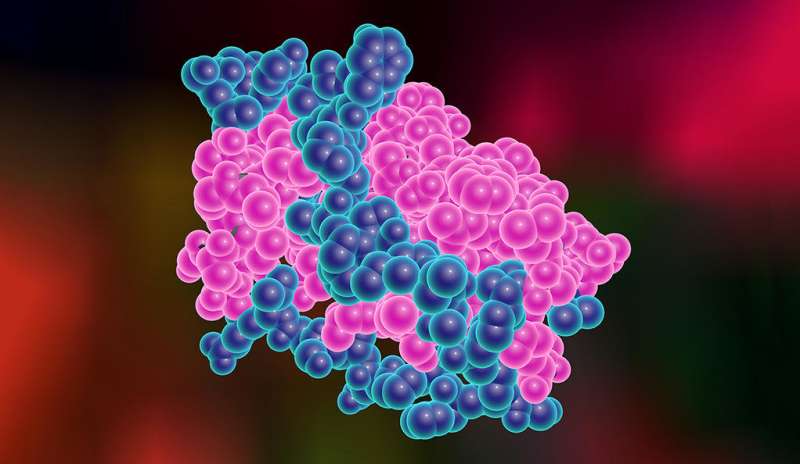Credit: stock.adobe.com
To keep the human brain supplied with energy when food was scarce, mammals evolved the ability to switch from burning carbohydrates to burning fat in order to preserve skeletal muscle that would otherwise be metabolized and converted to glucose. Scientists have long believed that the transition to fat metabolism was instigated solely by a drop in insulin. But a new study has identified leptin—a hormone made by fat cells—as a key mediator in this fundamental biological process.
The Yale study, led by Gerald I. Shulman, professor of medicine and cellular & molecular physiology, examined the rate of fat and carbohydrate metabolism in rats during starvation as they transitioned from a fed to fasting state. The research team's analyses yielded new insights about leptin biology.
During starvation, Shulman said, plasma leptin levels fall, activating a pathway that promotes the breakdown of fat and mediates this critical shift from glucose to fat metabolism. While a drop in insulin also occurs, a decrease in leptin is also necessary for this process to happen, the researchers discovered.
"We found a new role for leptin in terms of energy maintenance, and the maintenance of nutrient supply to the brain during starvation," Shulman said. "This leptin-mediated glucose-fatty acid cycle may be evolutionarily important for survival during times of famine."
The paper is published in Cell.
More information: Rachel J. Perry et al. Leptin Mediates a Glucose-Fatty Acid Cycle to Maintain Glucose Homeostasis in Starvation, Cell (2018). DOI: 10.1016/j.cell.2017.12.001
Journal information: Cell
Provided by Yale University
























